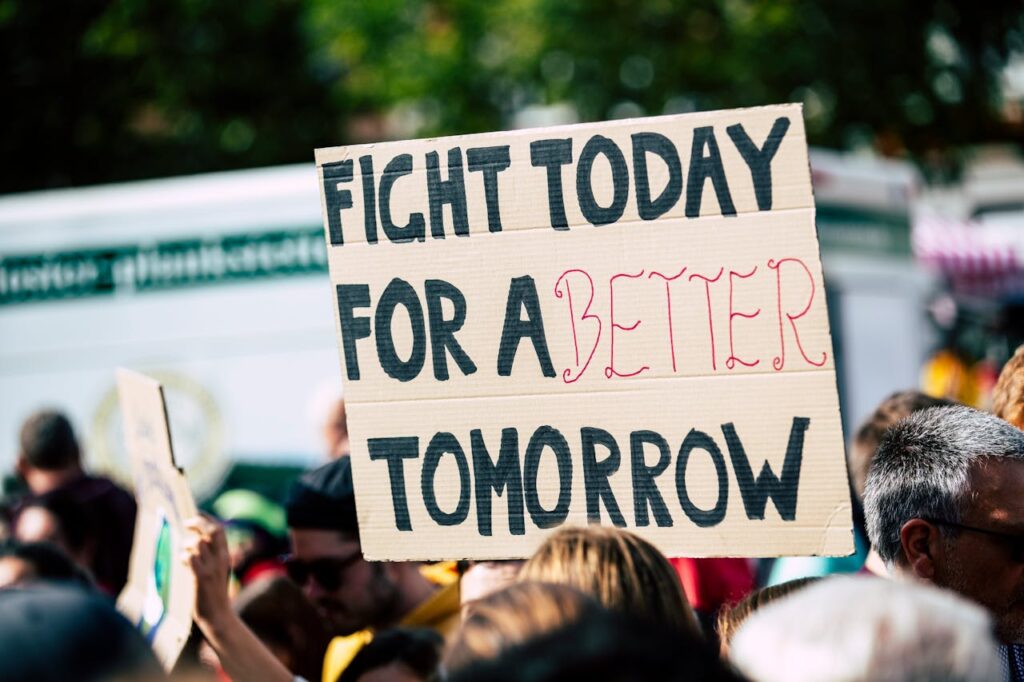HANDLING CONTROVERSY THE RIGHT WAY
Recent events have made people look again at what actions an employer can take when an employee’s workplace conduct goes viral. From controversial comments on social media to participation in social movements or protests, there is a veritable minefield of issues to navigate. It can be hard for companies to know what to do in these situations.
As we have seen with Jimmy Kimmel’s brief suspension related to comments made about the shooting death of Charlie Kirk, or the termination of employees at Home Depot for wearing a BLM pin, employers react when problems or controversy come up, with varying results.
Given the complex issues and potential backlash, understanding how to legally and effectively manage these situations is important.



Employee Conduct: At Work vs. Off Duty
Workplace Conduct & Company Policies
Company policies outline performance expectations and specify the types of workplace conduct that are prohibited. From dress code to business ethics to sexual harassment, the company’s code of conduct establishes clear guidelines regarding the company’s expectations of employee behavior. The primary function of these policies is to provide employers with a legitimate and documentable basis for taking disciplinary action when performance expectations are not met or when prohibited conduct occurs.
However, just having policies isn’t enough. Those policies need to be tailored to address the company’s legitimate business concerns without infringing on employees’ workplace protections. Policies that are too broad, vague, or attempt to regulate activities that are protected by law can present legal issues.
Off-Duty Conduct & Legal Protections
An employee’s off-duty conduct can also be a concern for employers, especially when it affects the employer’s brand or reputation. Since employees are often viewed as representatives of the company, actions taken outside of work can quickly lead to backlash, loss of customer trust, or damage to business relationships. It can be tempting to try to regulate or discipline for off-duty conduct that doesn’t meet company standards, but employers should be careful.
While protections vary, most states offer some level of protection for lawful off-duty activities. Some are limited to certain activities. Others are expansive, protecting all kinds of lawful activities. Nevada falls into the latter. It’s important to understand what protections and craft policies accordingly.
Even if not specifically protected, employers need to ensure that there is a nexus (i.e., a direct and material connection) between the employee’s off-duty conduct and their job or the employer’s business interests. For example, conduct that limits or prevents an employee from doing their job (e.g., losing a required license or creating a conflict of interest) or harms the company (e.g., loss of customers or creating a public embarrassment).
When in doubt, consulting legal counsel before administering discipline for off-duty conduct is the safest option.
How Far Does the First Amendment Extend?
Freedom of speech and expression are a cornerstone of American democracy. The purpose is to allow the free expression of ideas without fear of censorship or retribution. The First Amendment is often cited as the justification for making statements or participating in causes that might be controversial.
But do the protections of the First Amendment protect against workplace consequences for unpopular or controversial opinions? As with most things in the law, it depends.
In the private sector, the First Amendment does not shield employees from adverse employment actions for things that they say or for causes they wish to champion that might be divisive. Private employers do not have to allow employees to voice beliefs that other employees or management find offensive. They can place boundaries, within reason, on what conduct is appropriate in the workplace, and when off-duty conduct might result in discipline.
The public sector, on the other hand, is more limited. The First Amendment guards against government infringement on the freedom of speech and expression. That doesn’t change when the government becomes the employer. For government employers to take any adverse employment action, the employer’s interest in an efficient, disruption-free workplace must outweigh the employee’s right to speak out on matters of public concern. An employer’s interest is generally stronger where the workplace conduct creates a divisive atmosphere, has a direct impact on productivity, or undermines public confidence.
When Employee Conduct is Concerted Activity
Under the National Labor Relations Act (NLRA), employees have the right to engage in collective action for their mutual aid or protection regarding terms and conditions of employment – often referred to as protected concerted activity. This right applies whether or not the employees are unionized.
Protected concerted activity can include employees making social media posts advocating for better pay or working conditions; employees participating in concerted refusal to work in unsafe conditions; and raising group concerns with management or a government entity regarding employment conditions. The NLRA does not protect statements that disparage an employer’s products or services, statements that are knowingly false or defamatory, or personal complaints about the employer. The distinction is whether the activity is aimed at improving working conditions or solely to tarnish the employer’s reputation.
Under the Biden Administration, the National Labor Relations Board (NLRB) took an expansive view of many issues, including what conduct might be considered protected concerted activity. This expanded interpretation of protected concerted activity made it easier for employees to succeed on unfair labor practices claims. While it’s not likely that the NLRB under the Trump Administration will continue to interpret employee rights under the NLRA as broadly, it’s important for employers to be mindful that any nexus between the speech or conduct and the workplace may trigger NLRA protections.
Just Because You Can Restrict It, Should You?
The ability to restrict certain kinds of employee speech or workplace conduct doesn’t always translate to a good business decision. There is something to be said about the marketplace of ideas. At the same time, employers have a legitimate interest in setting boundaries for that discourse. How do you find balance?
The Benefit of Open Communication
When employees feel safe to share differing viewpoints and even criticism, the company benefits. You see better decision-making because different perspectives highlight potential blind spots. You have higher employee engagement because when employees feel their opinions are valued, they are more invested in giving their best effort for the success of the company.
When employees feel they can’t express themselves or have open discussions (and disagreements), it can create a stifling work environment. That, in turn, can impact employee morale and engagement, leading to increased turnover.


An Employer’s Legitimate Interests
While open discourse is clearly valuable, employers have a vested interest in protecting their reputation and maintaining a respectful workplace. A company’s brand and reputation are valuable assets. Even if it occurs outside of the workplace during non-working hours, employee conduct can be attributed to the company. Depending on the nature of the conduct, that can be a good thing or a bad thing. Conduct that results in reputational damage or legal liability is the concern.
Additionally, civil discourse is one thing. Harassment, hostility, and disruption are another. That type of conduct can create a hostile work environment, and that is something employers rightfully want to avoid and discourage.
Finding the Balance
Rather than focusing on making an exhaustive list of prohibited behavior, the best approach is to set a clear set of expectations. Focus on what the company stands for and the expected professional behavior.
Policies should address the manner and context of workplace conduct, not the content. For example, policies that require employees to engage in respectful interactions and do so in a way that isn’t disruptive to business operations. Prohibiting abusive, discriminatory, or harassing behavior achieves both of those goals.
Any restrictions should be directly linked to legitimate business necessity. For example, workplace policies that restrict the sharing of proprietary, non-public information or trade secrets, or that prohibit false, defamatory, or malicious statements, are important to ensuring the business can maintain its reputation, operate successfully, and avoid legal liability.
Key Takeaways & Best Practices
The best way to handle controversy is to establish a code of conduct that discourages controversy from arising in the first place.
- Develop Clear, Compliant Policies: Policies must be clear, specific, and tailored to legitimate business concerns. Vague or overly broad policies can create legal risk.
- Be Neutral & Consistent in Handling Workplace Conduct: Policies should be enforced regardless of the content of the behavior. Employees engaged in similar conduct that has the same impact should be treated in the same manner. Don’t discipline one and overlook the other.
- Establish a Clear Nexus for Discipline: When considering discipline for off-duty conduct, consider whether there is a direct and material connection between the conduct and the employer’s business. If there isn’t, discipline can be risky.
- Foster a Workplace Culture of Open Communication: Create a workplace environment where employees feel safe to share differing opinions in a way that is productive and not disruptive to the business.
In 2025, when everyone and everything is online, and anything can go viral in an instant, the best way to handle controversy is by setting clear, defensible boundaries that protect the business’s reputation and legitimate interests while fostering a positive company culture.
By: Audra L. Parton, JD
Mailing List Sign Up Form
Fill out this mailing list sign up form to receive monthly email updates on the latest NAE news, HR issues, special events, training dates and more!
